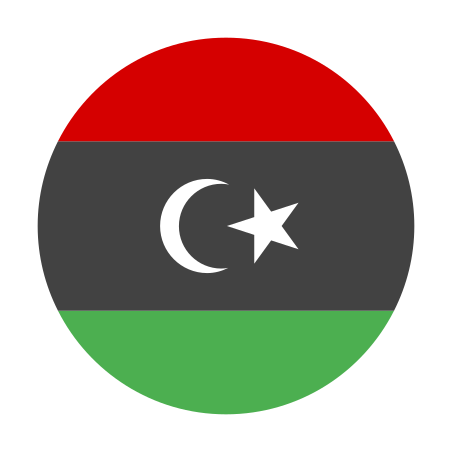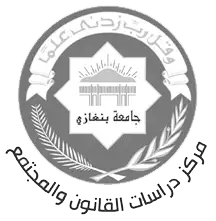Justice seeking and access to justice in Libya: former owners of land dispossessed via Law 4/1978 in Tobruk
In the 1970s, the revolutionary regime of Muammar Gaddafi expropriated and redistributed land. In the aftermath of his fall, former owners started to claim their land back - putting them at loggerheads with current occupants. Dr Suliman Ibrahim analysed one particularly revealing land dispute in the eastern Libyan city of Tobruk which seemed impossible to resolve until its very unexpected end.
This case study is about a person who lost the land he purchased for investment in the centre of Tobruk when in 1978 Gaddafi regime enacted Law 4. He never received any compensation and his, and his heirs’, efforts to get the land back were, to date, to no avail. The law impacted tens of thousands of owners, but the study focused on this particular case for it is representative of how justice seeking can be heavily influenced by political and social changes.
While from Zlitin in the west of Libya, Hassan chose Tubruk in the far east to be his hometown. He became a trader there, and in the sixties purchased land in the centre of the city to build blocks of flats for investment and got a mortgage. The environment then was encouraging. The Monarchy regime (1951-1969) adopted laws favorable to private investment.
Hassan paid the last instalment of the land price in early seventies, but he decided not to start building the blocks. Gaddafi regime that came to power in 1969 was then sending signals that it was following on the steps of the neighboring Egypt’ socialist policies and laws including those limiting the role of private ownership and investment. Indeed, in 1978, the regime introduced Law 4 that banned owning more than one dwelling or one plot of land. Hassan had to report the ‘excess’ property including the land, which was then taken by the state and assigned to the newly established ‘Public Company for Markets’. Interestingly, Hassan did not demand any compensation for the land taken. Later, he explained that he felt that Law 4 was justified; it aimed at public interest.
Things changed, however, in 2006. Then, the regime introduced reformative measures including reviewing its socialist policies and laws. In that year, the regime disbanded the Public Company for Markets and formed a committee to compensate for, or restitute, property expropriated via Law 4. Hassan then applied for restitution to the branch committee in Tobruk.
There was the problem of the market built on the land. After more than 25 years without any maintenance, this metal building was crumbling. Still, Hassan was asked to pay the mortgage the disbanded company had when building it: over 4 million Libyan Dinar (more than 3 million euro). Expectedly, he refused to pay it. He did pay the mortgage he took when planning the investment despite the land being taken by the state, but he was not prepared to pay that huge amount too.
To complicate matters further, the market was assigned to a local public marketing company within the municipality of Tobruk. Clearly, the regime was not prepared to completely abandoned its socialist policies. In practice, however, the market was contracted to a private investor happened to be the cousin of the person responsible for the economic sector within the municipal council and a leader of the local powerful tribe.
Eventually, Hassan managed to get a decision by the compensation committee to get his land back provided that he would rent or pay for the market. Yet, all attempts to implement the decision failed. The powerful private investor refused to leave. Hassan resorted to no avail to courts, the head of the military area, the compensation committee, the minister of justice, administrative monitoring authority, the state property authority, the real estate registration authority, Saif Al-Islam’s human rights commission and the people’s general congress. Local institutions entrusted with enforcing the decision declined to do so. The big blow came when the regime, in another move showing that it was unsure about reviewing its socialist policies, made a decision preventing the restitution of any land on which a public market was built. Hassan was left with no choice but compensation which he refused.
The February revolution did not bring any change. By then Hassan passed way and Hani, his eldest son, replaced him in pursuing justice. The son became an active member of the newly established associations for former owners. They lobbied the General National Congress (GNC) and government for abolishing Law 4 and addressing its consequences. This resulted in several draft laws but none saw the light, on time at least. The GNC did adopt a law abolishing Law 4 (Law 16/2015) and another addressing the consequences by deeming restitution as the default remedy (Law 20/2015). It did so however in 2015, after the House of Representatives (HoR) was elected and the country became politically divided. Being based in Tobruk, where the GNC and its laws were sees as illegitimate, Hani could not make use of these laws. He had also to cease his activism in an association its headquarters were in Tripoli.
When interviewed, he was very pessimistic about any new law. Laws, he said, need enforcement which was unattainable given the condition of the relevant state institutions. His opponent, the private investor, could only be evicted if strong enforcement institutions would be in place. He, despite decades of residing in Tobruk, is deemed an outsider in a city claimed to be built on the land of the investor’s tribe.
Later, however, there seemed to be a positive outcome for Hani and his family. One of the newly rich businessmen, known for trading in drugs, was attracted to the centrally located land and offered to purchase it for 40 million Libyan Dinar (around 8 million US dollars in today value). He offered to pay the private investor ,5 million Dinar to leave the land. Hani, and his family, agreed to the offer. Legally speaking, the land is still state owned, but the businessman could deal with it, we were told. Knowing how he operated, one would expect this dealing to involve corruption. Hani did not care. To him, what matters is to finally get the matter resolved.
This summary was published in Suliman Ibrahim, Bruno Braak and Jan Michiel Otto (2022) 'The Long and Winding Road: Justice seeking and access to justice in Libya', Leiden/Benghazi: Van Vollenhoven Institute/Benghazi Centre for Law and Society Studies.




